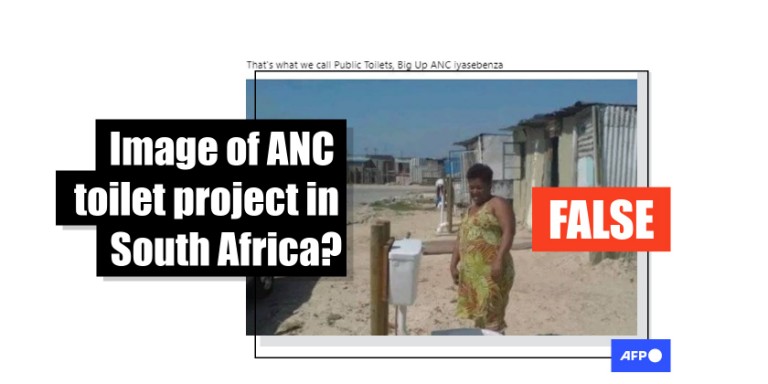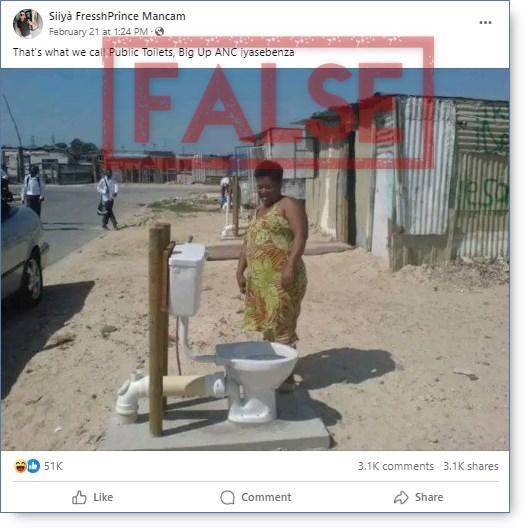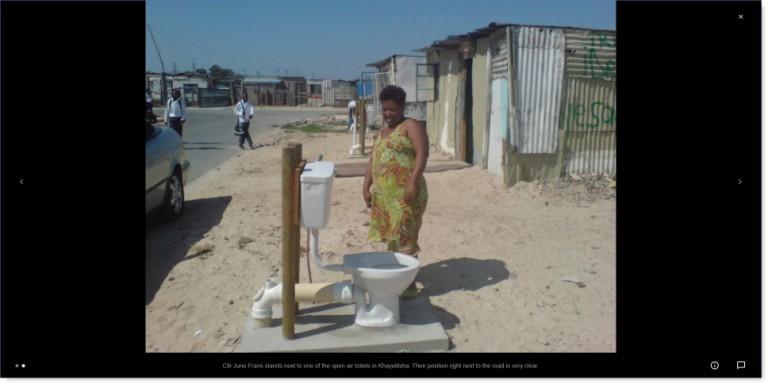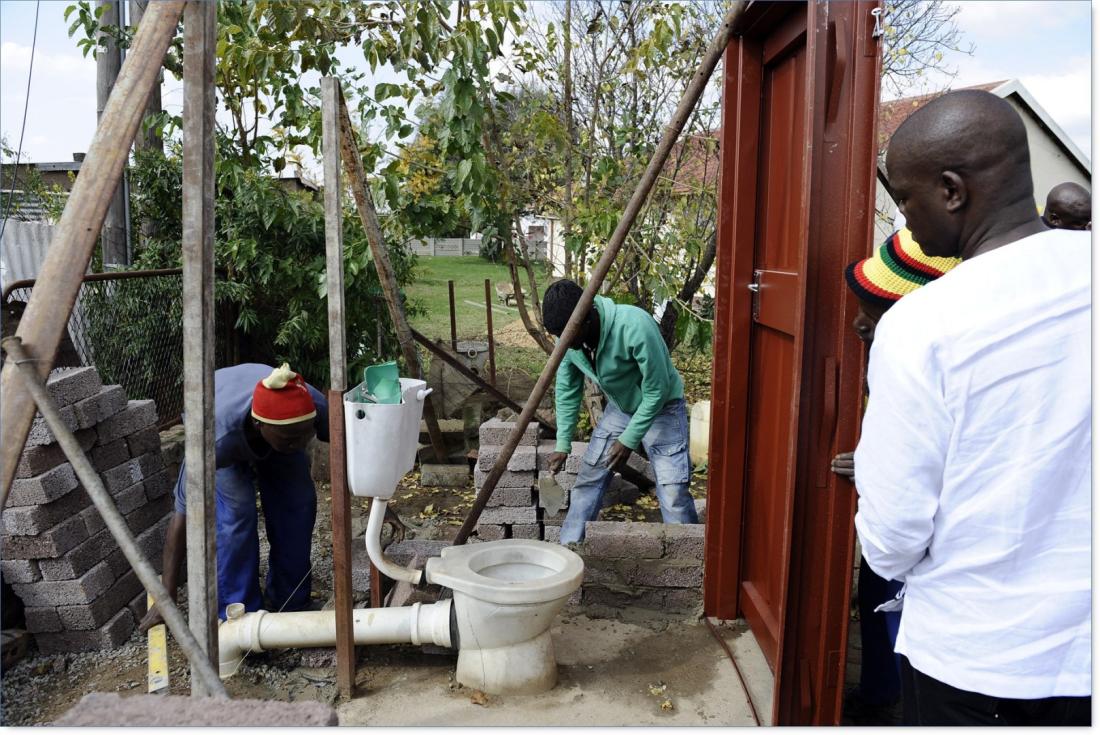
Posts falsely claim photo shows unenclosed toilets installed by ruling ANC in S.Africa
- This article is more than one year old.
- Published on March 14, 2024 at 16:47
- 3 min read
- By Tendai DUBE, AFP South Africa
“That’s what we call Public Toilets, Big Up ANC iyasebenza (sic),” reads a Facebook post published on February 21, 2024.
Iyasebenza means “it is working” in isiZulu.

An accompanying image shows a woman looking at an open-air toilet installed next to a road lined with shacks.
The post has been shared and liked more than 3,100 times each.
Similar claims were repeated on X and TikTok.
Service delivery
Surveys predict further electoral decline for the ANC when voters head to the polls on May 29, 2024 (archived here).
Corruption scandals and the collapse of basic services have cost the party dearly over the years (archived here).
One shady affair involved a R600 million contract awarded by party officials to political supporters in 2015 for the construction of 66,700 pit latrines in the impoverished Eastern Cape province (archived here).
Cases like these often impact the poorest communities in a country where harsh socio-economic divisions remain a grim legacy of the apartheid era (archived here).
However, the open-air toilet pictured on social media was not part of a project implemented under the ANC.
Toilet saga
A reverse image search revealed the photo appeared in multiple reports more than a decade ago, including a political blog about Cape Town in the Western Cape (archived here).
At the time, the website’s author, Brett Herron, was a councillor representing the Independent Democrats (ID) in the City of Cape Town — as the municipality is formally known.
His article “Khayelitsha open-air toilet ‘deal’ is ludicrous!” was published on January 30, 2010, and included the original picture as well as a second image of the same toilet from a different angle (archived here and here).

“Cllr June Frans stands next to one of the open-air toilets in Khayelitsha,” reads the caption. “Their position right next to the road is very clear.”
Khayelitsha is Cape Town's largest township and one of its poorest areas (archived here).
Herron, now a member of South Africa’s National Assembly and secretary general of the GOOD party, told AFP Fact Check that he took the photograph and others in January 2010 with his then-party colleagues.
“Yes, I took the photo. When the community raised concerns about the open-air toilets, I went to Khayelitsha as a councillor for ID, along with my ID colleagues June Frans and Cynthia Clayton,” Herron said on February 29, 2024.
DA project
When the scandal broke, the DA was in charge of the city’s council, having defeated the ANC in local government elections in 2006. Three years later, the party won control of the Western Cape province (archived here).
The toilet project was launched in 2009 when the DA-led municipality installed more than 1,300 open-air toilets in Makhaza and other informal settlements in Khayelitsha with the understanding that residents would foot the bill to enclose them. All but about 50 toilets were enclosed (archived here).
The municipality was then asked for assistance to complete the outstanding sites and, as a compromise, used corrugated sheets to cover them. Protests followed in 2010, with the ANC’s youth wing members taking the matter up with the South African Human Rights Commission before escalating it to court (archived here).
In 2011, the Western Cape High Court ordered the municipality to build proper enclosures around more than 1,300 toilets it had installed, ruling the city had violated the dignity of residents (archived here).

Ironically, the same year, the ANC was forced to do damage control after it emerged that a municipality run by the party in the Free State province had built about 1,600 open-air toilets in 2003 (archived here).
Copyright © AFP 2017-2026. Any commercial use of this content requires a subscription. Click here to find out more.
Is there content that you would like AFP to fact-check? Get in touch.
Contact us




